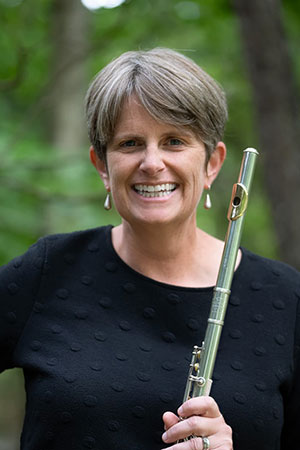
Rebecca Quigley
Degrees & Studies
MM Nino Rota Conservatory Italy
Division
Flute
Music Conservatory of Westchester
Faculty since 2021
Performances & Distinctions
Rebecca Quigley received her Master of Music degree from the University of Illinois at Urbana-Champaign, and her undergraduate degree from Skidmore College. Her primary teachers include Frances Drinker, Jan Vinci and Alexander Murray. Rebecca has performed with Collegium Westchester, Taconic Opera, the Conductor’s Institute at Bard College, The Riverside Orchestra, Croton Chorale and Chamber Orchestra, Cortlandt Chamber Orchestra, Orchestra 914, and at the 2009 National Flute Association Convention with Robert Dick. She is a founding member of the flute choir Northern Westchester Flutes, and the woodwind quintet Senasqua Winds. Fluent in Japanese, Rebecca has studied the shakuhachi, or Japanese bamboo flute. She has served as the Webmaster for the New York Flute Club, was a member of the editorial advisory board from 2011-2017 for the National Flute Association’s The Flutist Quarterly, and currently serves on the Board of Orchestra 914. Rebecca is the author of Planning the Music for Your Wedding (2003), published by Cherry Lane Music. She has taught at the Skidmore Summer Flute Institute and at Concordia College. Rebecca lives in Cortlandt Manor, New York, with her husband, two teenagers and their dog.
Teaching Philosophy
When we think back to our childhoods, we invariably remember the teachers who made the greatest impact on our studies. I have been blessed to have a few of these individuals in my life, and I emulate their work and passion in every lesson I teach. So while we are learning the embouchure, breathing, technique and fundamentals of flute and piccolo playing, we may sing a silly sentence to capture a tricky rhythm, or stand with our backs against the wall to make sure we aren’t moving unnecessarily. I ensure that students understand the history of what they are playing, the composer’s motivation and inspiration, and why the music sounds as it does through music theory discussions. I encourage performances whenever possible because it develops skills that students will carry with them for the rest of their lives – practice, preparation, public speaking, story-telling and the sense of accomplishment when the performance concludes.

